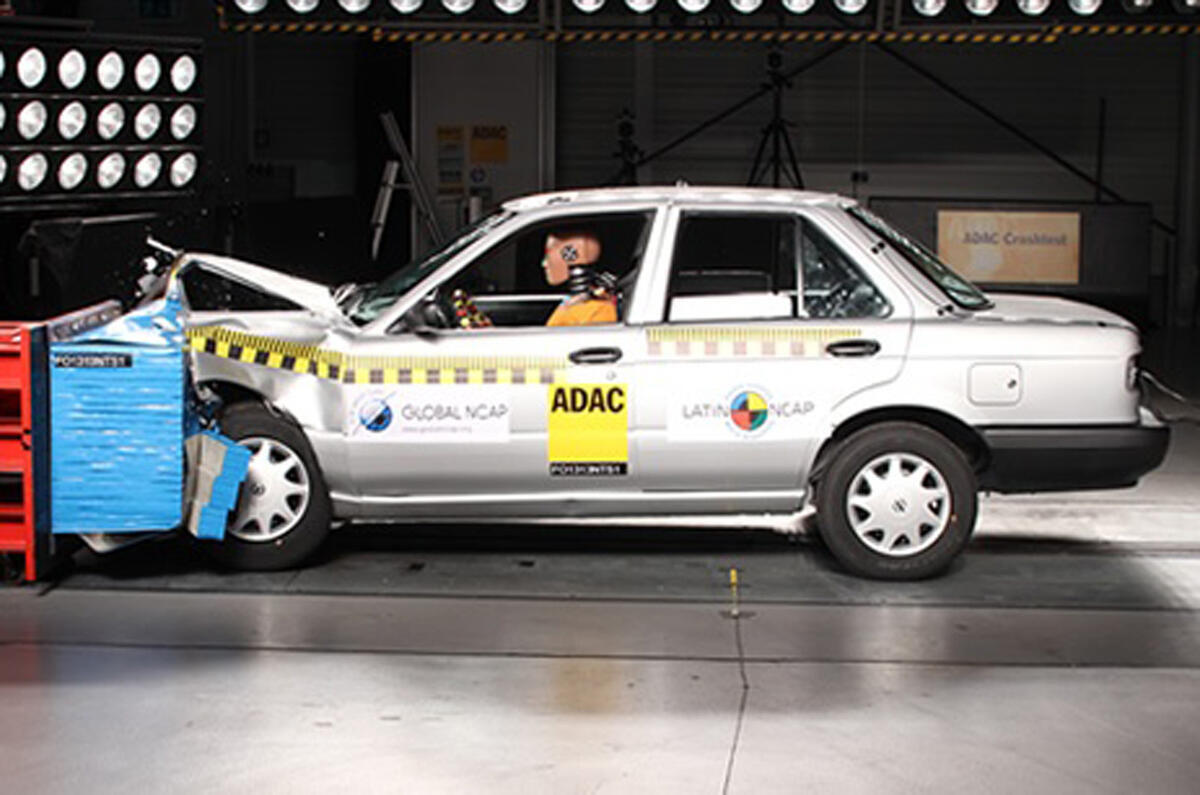The secretary general of Global NCAP, the organisation that assesses the safety standards of new cars around the world, has dismissed claims that stringent tests on budget cars built for emerging markets are misguided.
Global NCAP recently branded Indian-market cars such as the Tata Nano and Suzuki-Maruti Alto 800 as “unsafe”, after subjecting them to its crash tests.
But Nissan boss Andy Palmer labelled the criticism of the cars as “absurd”. He added: “I think the people who criticise these cars for not meeting US or European crash standards are living in a dream world.”
Palmer said: “We are talking about cars built to transport people who would otherwise be four or five-up on a motorcycle. These people today can’t afford more, and if we fit safety systems we will drive the prices up and they’ll choose the motorbike again. A car with a body and individual seats is much safer than a bike.”
Nissan recently launched the Datsun Go, a new budget vehicle for the emerging markets.
Global NCAP’s secretary general David Ward countered: “Andy Palmer is entirely wrong. The UN’s basic crash standard for front impact is not costly to apply. To pass it only requires a single driver airbag and reasonable body shell integrity, which today many global platforms already provide.
“These standards have been in force in Europe since 1998 and as part of the current UN Decade of Action for Road Safety are increasingly being applied around the world. They are affordable and should be a global minimum.
“No one is suggesting change overnight – that’s why it is a Decade of Action. Whether Palmer likes it or not, the growth of New Car Assessment Programmes (NCAPs) around the world will build demand for safer cars.
“Nissan seems to want to persist in selling products like the Nissan Tsuru in Mexico which scored very badly (zero stars) when tested last year by Latin NCAP. The argument that unsafe cars are substituting for motorcycles is weak. With global harmonisation of UN crash standards the limited extra costs will be reduced even further.
“Some in the car industry foolishly resisted the introduction of these crash tests in Europe in the mid-1990s. Andy Palmer will make the same mistake again if he stands against the UN’s efforts to improve vehicle safety in the Decade of Action.”




Join the debate
Add your comment
@beniot9888
Unlike the others, I get his
Stop thinking as a European. Those clients want what they want, and it's not the same thing everywhere around the world. In India for example, some small cars could receive airbags with a supplement. so people could pay an extra and get it. But did they? No.
Or why should we stop at airbags? Why no ABS, stability control, auto braking stuff? It could save the lives... of the ones who can afford it!
will you stop waving your willy please nissan.
I still remember the furore when the Euroncap tests were introduced with a lot of car companies saying they werent realistic, waste of money etc.
What they really meant to say was that were angry because they were about to get caught with their trousers down.
Its obvious that crash engineering is bothersome for these firms. God, we had to engineer for ride and handling, and then noise, vibration and harshness and now crash safety too? My God, the costs! Our marketing men say that Indians wont pay an additional £300 for airbags and side impact bars because they dont care about their lives in the way Europeans do!
The simple message is... if you care about safety, buy a Volvo! In all of the crashtests I have read about around the world, they have never done badly. This is unlike any other car brand. They never complain about independent crash testing, infact welcoming it as a useful tool to bring up safety standards and save lives across the board. I would be shocked if a V40 sold in China offered less crash protection than one sold in Europe, unlike say the VW Polo (infairness, VW actually got embarassed and pulled their trousers up making airbags mandatory on all Polos sold in India... they arent frantically waving their willies like Nissan). Volvo are the only car company to have built a custom crash facility, simulating serious real life accidents investigated by a dedicated accident investigation team, a team who goes out to real accidents involving Volvos recovering wreckage and conducting forensic analysis.